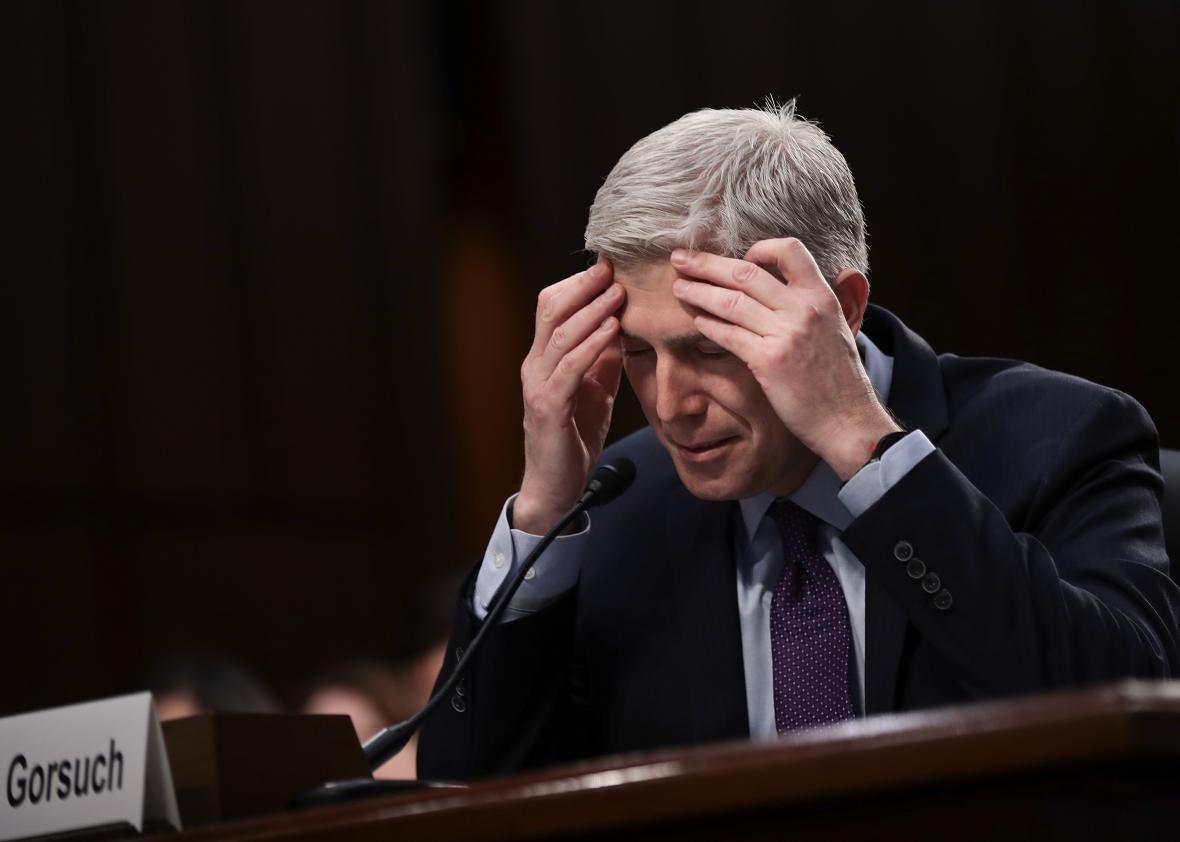On Day 2 of Neil Gorsuch’s confirmation hearings, we’ve learned the Supreme Court nominee is extremely adept at evading questions. Midway through the afternoon, Sen. Al Franken figured out how to pin him down, asking Gorsuch to explain his dissent in TransAm Trucking v. Administrative Review Board—the “frozen trucker” case.
For a more legally rigorous explanation of how to read Gorsuch’s dissent, see Jed Handelsman Shugerman’s assessment in Slate. And for a nuanced explanation of why questioning Gorsuch’s thinking in the “frozen trucker” case may not be a winning argument for Senate Democrats, Elie Mystal has a compelling piece in Above the Law.
Nevertheless, what is satisfying and noteworthy about this specific exchange is that Franken—in his typical method of conceding his own limitations—turns this case into a story that reveals the “absurdity” of Gorsuch’s reasoning.
He starts by telling the story of Alphonse Maddin, a trucker who realized that his trailer’s brakes were frozen. He calls in for repairs but is told to wait. In the meantime, while waiting in extreme temperatures, he starts to experience what he thinks are signs of hypothermia. As Franken says, “If you fall asleep waiting in 14 below zero weather you can freeze to death. You can die.”
If Maddin had kept the trailer with frozen brakes attached, he would have been able to drive at 10 or 15 miles per hour on the highway. Franken asks Gorsuch whether he would have personally felt safe on the road with Maddin driving that truck. Gorsuch sputters before finally admitting he would not.
After waiting hours, Maddin unhitched and abandoned his trailer temporarily so he could get warm. He returned just 15 minutes later. Franken asks Gorsuch what he would have done in such a situation.
“Oh, senator,” Gorsuch replies. “I don’t know what I would have done if I were in his shoes, and I don’t blame him at all for a moment for doing what he did do. I empathize with him entirely.”
Still, Maddin was fired for his actions. And Gorsuch was the only judge to uphold the company’s decision to fire him. Franken concludes:
It is absurd to say this company is in its rights to fire him because he made the choice of possibly dying from freezing to death, or causing other people to die possibly by driving an unsafe vehicle. That’s absurd. Now I had a career in identifying absurdity. And I know it when I see it. And it makes me—you know, it makes me question your judgment.
Franken bypasses the academic discussion of how Gorsuch read the law and instead makes a much more effective point—that Gorsuch’s ruling in this case reveals something about his heart. And his heart is cold. Maybe not 14 degrees below zero, but certainly a few degrees south of freezing.
